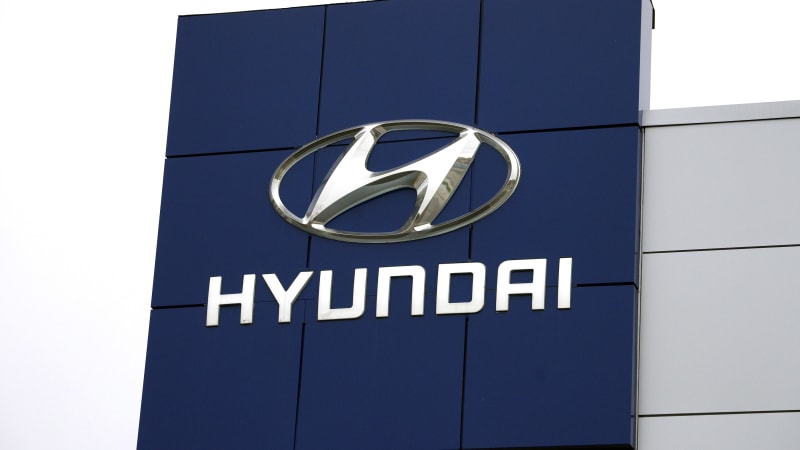SEOUL – Hyundai has so far avoided a chip shortage that has plagued global automakers, largely stocked up on chips last year and even accelerated purchases towards the end, said three knowledgeable people.
The shortage has led to production cuts worldwide, including at Volkswagen and General Motors, prompting Germany and the United States to step up efforts to resolve the shortage.
Other than Japan’s Toyota Motor, which said this month it had enough chip stock to last about four months, Hyundai and its sister company Kia Corp are the only global automakers to have kept a stock of low-tech chips that helped them keep production up. to keep. .
If it doesn’t go away soon, the shortage could also hit Hyundai, as the tight capacity on the factory floors puts pressure on the production of even high-tech car chips, said two of those familiar with the company’s purchases.
The South Korean carmaker continued to buy chips even as rivals cut orders to reflect the reduced demand caused by the pandemic.
Analysts said past events that swept Hyundai’s supply chain and forced it to shut down have shaped this more conservative view of the stock, a departure from the typical just-in-time approach taken by automakers.
“Like other automakers, Hyundai also planned to cut production at the beginning of the year due to COVID-19,” said one of those with direct knowledge of Hyundai’s purchases.
But the procurement read the semiconductor industry’s trend to reduce automotive chip production and said, ‘if we don’t buy them too, we’ll be in trouble later,’ the person said, referring to gadget makers who have the most capacity. for making chips.
Chipmakers who supply to auto companies outsource most of their production to contract manufacturers such as Taiwan’s TSMC, which analysts say often prioritize orders from electronics customers that account for almost all of their revenue.
Hyundai still bought fewer chips in 2020 than in 2019, said one of the sources with direct knowledge of auto chip production. But in the quarter ending December, the number of purchases spiked, the person said.
The people did not want to be identified because they are not authorized to speak to the media.
The fact that Hyundai’s domestic market was relatively solid through the pandemic most likely influenced the company’s plans, analysts said, as well as its experiences with China and Japan.
Hyundai learned lessons in 2019 from a diplomatic row with Japan that affected stocks https://www.reuters.com/article/us-southkorea-japan-laborers-chip-analys-idUSKCN1UR3LZ of chemicals at South Korean chip makers, and early 2020 When the corona virus spread in China, production at the Hyundai and Kia factories was halted due to a shortage of part from China.
A spokeswoman told Reuters that Hyundai was working with its suppliers to maintain stable production.
Growing Concern
As Hyundai continued to source from chip manufacturers and global auto parts suppliers such as Bosch and Continental before the shortage increased, they also managed to keep costs down.
“This allowed Hyundai to secure car chips first and second when they were cheaper,” said Kim Jin-woo, an analyst at Korea Investment & Securities.
Hyundai also has more local suppliers than rivals.
These vendors – including Telechips, which outsource manufacturing to Samsung Electronics – are likely to prioritize Hyundai, from whom they get a large portion of their revenue, analysts said.
A person with direct knowledge of Hyundai’s purchasing decisions said the company has diversified for at least one chip since late last year.
In a statement on Thursday, Hyundai said it plans to shut down operations at a South Korean factory for five days in March to adjust stocks of some models.
A union official told Reuters that the company was trying to save on chips by modifying production of the weaker Sonata model. Sonata in South Korea sold 67,440 units last year, up from 145,463 units of Hyundai’s most popular sedan Grandeur.
According to an internal Reuters document, Hyundai expects the deficit to narrow in the third quarter, and Kia said last month that it had been reviewing its supply chain since October to avoid production disruptions.
“We wouldn’t say we’re prepared for the next three to six months, but we can tell you we’re not seeing an immediate production outage,” Kia said on an earnings call last month.
Still, there is growing concern at Hyundai, two out of three said. The company checks inventory more often and tries to close supply contracts earlier, one of them said.
The union official said Hyundai had told the union this week that Hyundai had “gotten a lot of chips” but that the situation was getting “a bit difficult”.
“Customers are trying to pull out all the stops, while suppliers are strategically working on the order they get,” said the source with direct knowledge of auto chip manufacturing. “It gets worse before it gets better.”
